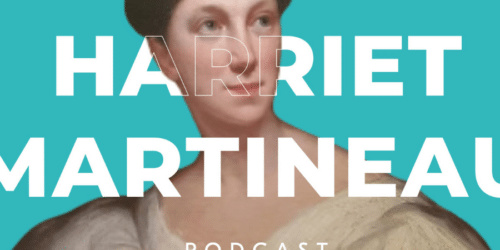
Submit your work in the requested file format
If you’ve been told to submit a Word document, don’t send in a PDF. If you upload a cropped PNG screengrab of your story instead of the Plain Text file as requested, you’re likely to be automatically rejected. There’s nothing sexy about file formats, but these simple three-letter suffixes can make the difference between nibbling the sweet strawberry of success and sucking the bitter lemon of rejection.
Do not ever go over the word count
Even by one! You think people won’t notice? They will! You stand a good chance of disqualification before anyone’s even read your work. You’re not respecting the competition, or the reader’s time, and it looks like you’re not taking the work seriously. This is basic editing! Your story will be stronger for it too.
Include the requested information in the filename
If no request is made, for the love of all that is good and holy make sure that your name is on your work, both in the filename and on the document itself, unless it has to be anonymous. DO NOT INCLUDE YOUR NAME ON AN ANONYMOUS ENTRY.
Do not get creative with your choice of typeface
Publishing runs on Times New Roman, but any similar Serif will do the trick. Try and avoid a Sans Serif, as they make fiction harder to read. Keep your Papyrus and Comic Sans and whatever God-awful default typeface that Microsoft is currently polluting the world with to your missing cat posters, or face the wrath of your reader.
Number your pages
Printers spit; pages fall. (Yes, some people still prefer to read on paper.)
Size matters
Make sure your paper size is set to A4, not US Letter. Why is this important? Printers are like grumpy local council bureaucrats and will absolutely refuse any task that deviates from the parameters of their job. If a judge or reader attempts to print your work on a printer configured to UK settings, the printer will stubbornly refuse to print, claiming that it’s “out of paper”. We know this is a lie! The tray is full of the thinnest, cheapest A4 that Amazon had to offer! But we also know that the printer is technically correct: it is out of US Letter paper. So the job must be manually over-ridden, or cancelled and re-sent after hunting around for the correct setting in the writer’s document. Either way, you’ve annoyed your reader and put them in a bad mood before they’ve even looked at your work.
Horses for courses
Don’t submit poetry into a prose competition. Don’t submit prose into a poetry competition. Don’t submit The Tales of Gerry the Gerbil into an adult fiction competition. Don’t submit 50 Shades of Ray: An Erotic Sci-fi Thriller to a children’s picture book competition.
Bullet-proof your work
Remember to proof-read your work—and your submission email!—before submission. Mistakes reflect badly on you and make your work harder to read and understand. A spell-check alone is not enough, as a spell-check won’t pick up a multitude of other potential potential mistakes (see what I did there?). Instead, read your words aloud, to yourself, or have your computer read them back to you.
You may have written the most beautiful and profound story, but it’s all for nothing if no one gets to read it—and that would be a waste of your time and your talents.
 Benjamin Johncock is an award-winning novelist, short story writer and journalist. His debut novel, The Last Pilot, was published in the U.S. and U.K. to widespread critical acclaim. It won the Authors’ Club Best First Novel Award, was shortlisted for the East Anglian Book of the Year, selected for Brave New Reads, and was one of The Observer’s Hidden Gems of 2016. His award-winning short stories have been published by The Fiction Desk, The Junket, Comma Press and Storgy. His journalism has appeared in the Guardian, The Spectator, and many others, and he has worked as an editor and copywriter. He’s on the editorial board of The Letters Page, a literary journal edited by Jon McGregor at the University of Nottingham, and for two years was a mentor for the National Centre for Writing’s Escalator writing programme. He is also a recipient of two Arts Council England grants. He lives in Norwich with his wife, his daughter, and his son.
Benjamin Johncock is an award-winning novelist, short story writer and journalist. His debut novel, The Last Pilot, was published in the U.S. and U.K. to widespread critical acclaim. It won the Authors’ Club Best First Novel Award, was shortlisted for the East Anglian Book of the Year, selected for Brave New Reads, and was one of The Observer’s Hidden Gems of 2016. His award-winning short stories have been published by The Fiction Desk, The Junket, Comma Press and Storgy. His journalism has appeared in the Guardian, The Spectator, and many others, and he has worked as an editor and copywriter. He’s on the editorial board of The Letters Page, a literary journal edited by Jon McGregor at the University of Nottingham, and for two years was a mentor for the National Centre for Writing’s Escalator writing programme. He is also a recipient of two Arts Council England grants. He lives in Norwich with his wife, his daughter, and his son.
Benjamin is also an NCW Academy online course tutor, and will be leading our upcoming beginners’ fiction course. Find out more →
You may also like...
Reintroducing Harriet Martineau with Stuart Hobday & Gaby Weiner
In this episode of The Writing Life, Stuart Hobday and Gaby Weiner discuss their new book ‘Reintroducing Harriet Martineau: Pioneering Sociologist and Activist’, and the the life and legacy of Harriet Martineau.

22nd April 2024
How to improve your poetry: top tips for aspiring poets
Embarking on a new poem can feel like an intimidating task for any poet. In this article, we share our top tips and a creative writing exercise that will help you have fun with your poetry.

18th April 2024
Crafting identity in fiction with Michael Donkor
In this episode of The Writing Life podcast, we speak with novelist Michael Donkor about how to craft identity when writing fiction.

8th April 2024






